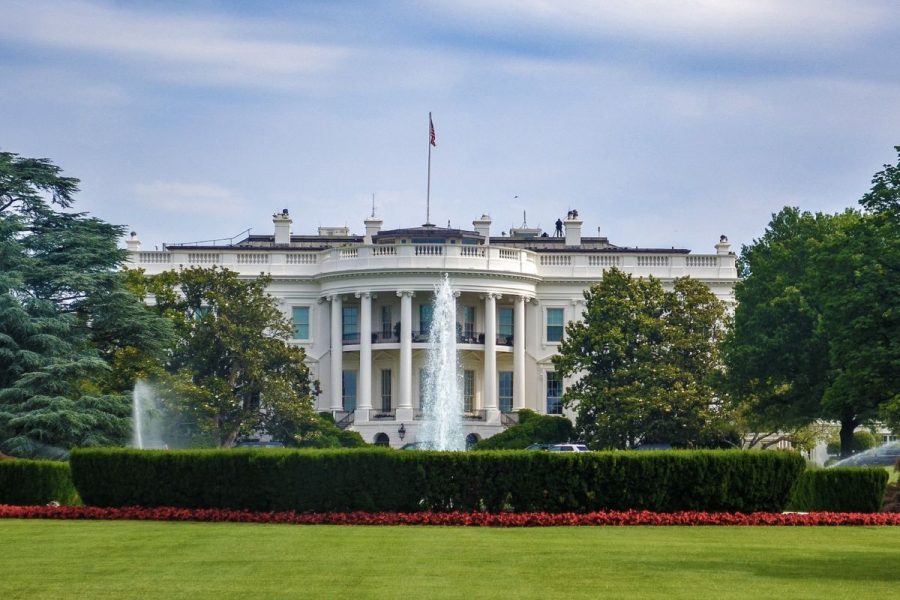Alabama Takes Center Stage in State of the Union: As the State of the Union address approaches, all eyes are turning to Alabama, where key figures are set to play prominent roles in the national discourse.
From highlighting pressing issues in reproductive healthcare to commemorating the historic Bloody Sunday anniversary, Alabama’s representatives and advocates are poised to bring attention to critical matters facing the nation.
Senator Katie Britt’s forthcoming Republican rebuttal promises to shed light on the American Dream amidst ongoing challenges.
The spotlight on Alabama sets the stage for a compelling and thought-provoking State of the Union address.
Alabama IVF Patient Latorya Beasley Highlights Reproductive Healthcare Challenges in State of the Union Address
In her prominent role during President Joe Biden’s State of the Union address, Latorya Beasley, an IVF patient hailing from Birmingham, Alabama, brings to light the formidable challenges that women encounter in accessing essential reproductive healthcare services.
Beasley’s experience, including the abrupt cancellation of her embryo transfer, serves as a poignant example of the hurdles women face in pursuing reproductive treatments, especially in the current legal landscape post the overturning of Roe v. Wade.
The disruption in Beasley’s IVF treatment not only impacts her personal journey but also underscores the broader implications of recent legal decisions on reproductive rights in the United States.
Civil Rights Advocate Bettie Mae Fikes to Attend State of the Union Address on Bloody Sunday Anniversary
Symbolizing the enduring fight for voting rights, civil rights advocate and singer Bettie Mae Fikes, a key figure in the historic events of Bloody Sunday in 1965, has been selected as one of the distinguished guests to attend President Joe Biden’s State of the Union address. Invited by the White House, Fikes’ presence at the event holds significant historical importance, especially as it coincides with the 59th anniversary of Bloody Sunday.
- Legacy of Resilience: Fikes’ participation serves as a poignant reminder of the relentless struggle for voting rights that has marked the Civil Rights Movement. Her presence embodies the resilience and determination of those who fought for equality amidst adversity.
- Historical Context: The timing of Fikes’ attendance on the anniversary of Bloody Sunday underscores the ongoing relevance of the events that transpired in Selma in 1965. It emphasizes the importance of acknowledging past injustices to propel progress in the present.
- Continued Advocacy: Fikes’ presence at this significant national event amplifies the voices advocating for the protection and expansion of voting rights. It highlights the need for ongoing activism to safeguard the democratic principles that underpin society.

ALSO READ: Lawmakers Expand Don’t Say Gay Rule Across Grades
Alabama Senator Katie Britt to Deliver Republican Rebuttal, Focusing on American Dream and Challenges
Alabama Senator Katie Britt, chosen by her colleague Senator Tommy Tuberville as the ideal candidate, will deliver the Republican rebuttal following President Joe Biden’s State of the Union address. She will focus on addressing challenges related to the American Dream and key national issues such as high inflation and education.
Senator Britt’s selection underscores her position as a rising star within the Republican Party, with a specific focus on economic issues and opportunities for future generations. By honing in on topics like inflation, education challenges, and the overarching theme of securing the American Dream, Senator Britt aims to provide a contrast to President Biden’s policies and proposals.
Her emphasis on these pressing matters aligns with the current concerns of many Americans and showcases her commitment to finding solutions to complex problems. Through this rebuttal, Senator Britt seeks to offer a perspective that resonates with constituents and offers a pathway forward that prioritizes economic stability and upward mobility for all citizens.
News in Brief
Alabama’s State of the Union representation features key figures addressing crucial national issues. IVF patient Latorya Beasley, set to speak during President Biden’s address, highlights challenges in accessing reproductive healthcare post-Roe v. Wade. Her disrupted IVF treatment exemplifies broader implications for women’s reproductive rights.
Civil rights advocate Bettie Mae Fikes, invited to the State of the Union on Bloody Sunday’s 59th anniversary, symbolizes the ongoing fight for voting rights. Fikes’ presence underscores historical significance, emphasizing the need for continued activism in protecting democratic principles.
Alabama Senator Katie Britt, delivering the Republican rebuttal, focuses on the American Dream, addressing inflation and education challenges. Britt’s selection highlights her rising status within the party, aiming to offer solutions to pressing issues and provide an alternative perspective to President Biden’s policies.
Our Reader’s Queries
Who is giving the rebuttal to the State of the Union address?
On Thursday, Sen. Katie Britt passionately criticized President Biden and his administration’s policies in the Republican response to the 2024 State of the Union. Her rebuttal aimed to highlight a contrast leading into the November general election.
What time is State of the Union address?
President Biden’s State of the Union address begins at 9 p.m. ET and will be live-streamed on WSJ.com and major TV networks. The anticipated duration is slightly over an hour.
What is the state of the union address called?
For numerous years, the speech was known as the “President’s Annual Message to Congress.” The term “State of the Union” originated in 1934 when Franklin D. Roosevelt employed the phrase, becoming its widely accepted name since 1947.
What is the main purpose of the State of the Union address?
The State of the Union Message, presented annually in January or February, is the President’s communication to Congress. During this address, the President addresses crucial issues affecting Americans, providing insights into resolving national problems. This includes proposing new laws and policies.

